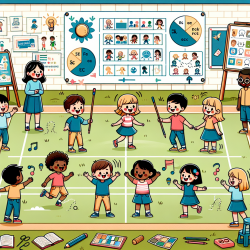Children with cleft lips and palates often face unique challenges in social integration within classroom settings. Recent research by Hupila, Moller, and Starr (1980) sheds light on the social status of these children when placed in regular classrooms, offering valuable insights for practitioners aiming to support these students more effectively.
The study focused on whether children with cleft lips and palates are accepted by their peers in the same manner as children without these conditions and how speech and cosmetic deviations impact this acceptance. The findings suggest that children with cleft lips and palates do not have significantly lower social status than their peers, indicating a level of acceptance that might be higher than previously assumed.
For practitioners, this research underscores the importance of fostering an inclusive classroom environment that promotes understanding and acceptance of all students, regardless of physical differences. Here are several strategies derived from the study's outcomes:
- Peer Education: Educate students about cleft palates and the challenges associated with them. Understanding fosters empathy and can reduce stigma.
- Inclusive Activities: Design classroom activities that encourage collaboration and interaction among all students, ensuring that children with cleft palates are fully integrated.
- Positive Reinforcement: Recognize and celebrate differences within the classroom. Highlighting the strengths and achievements of each student can boost self-esteem and promote a positive social environment.
- Speech Therapy Integration: Incorporate speech therapy practices within the classroom setting, not only to support children with cleft palates but also to raise awareness among peers about the importance of communication skills.
- Parental and Professional Collaboration: Work closely with parents and specialists, such as speech therapists, to develop tailored strategies that support the child's social integration.
The study also suggests areas for further research, particularly in exploring the depth of acceptance and the potential for children with cleft palates to attain high social status within their peer groups. Practitioners are encouraged to delve into these areas to develop a more nuanced understanding of social dynamics in inclusive classrooms.
Understanding and addressing the social challenges faced by children with cleft palates are crucial steps towards creating more inclusive and supportive educational environments. By implementing strategies informed by research, practitioners can make significant strides in enhancing the classroom experience for these children.
To read the original research paper, please follow this link: Classroom Social Status of Children with Cleft Palates.










